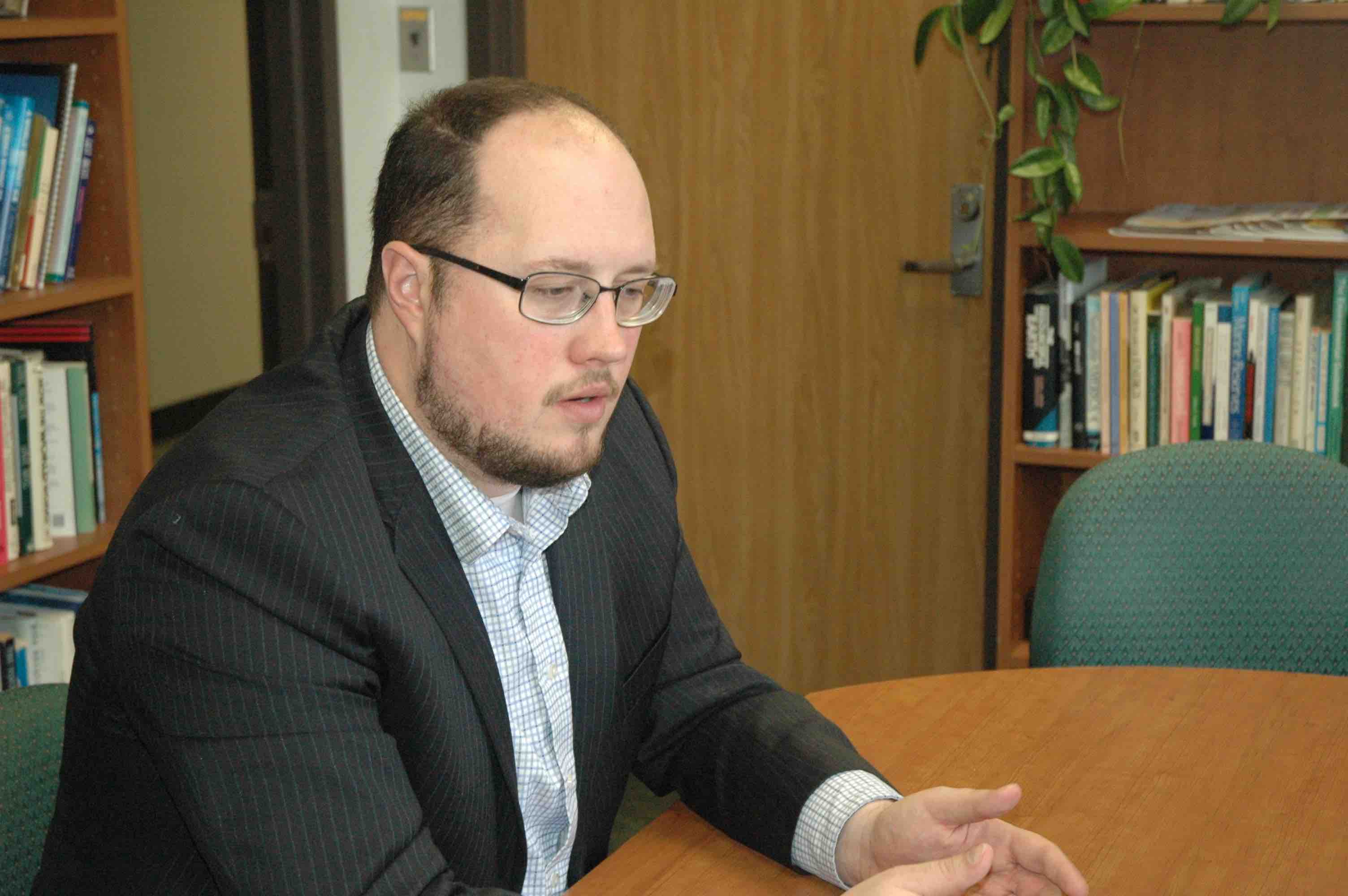The 2018 midterm elections have the nation buzzing. With students from Michigan State’s School of Journalism busy covering the election from our Spartan Newsroom, we wondered what the election looks like for Spartan journalists working in Washington D.C.
“The world is watching,” said Derek Wallbank, a team leader for First Word in Washington D.C. who runs the breaking news desk for Bloomberg. Wallbank, who is also a recipient of the ComArtSci Rising Star Award, gave us an insider’s perspective on what it’s like to cover an election from the nation’s capital.
What are you doing to prepare for the upcoming midterm elections?
“I started preparing for this election and about September of last year. Being on a breaking news desk, we are all about speed. But speed is not about hurrying or being frenetic. That's how mistakes happen. Instead, I think speed is about preparation. So how we practiced in the primaries is how we plan to play on Election Night, just bigger.
As for me, I like to start every big election night by being in nature. Today, since election night is running out of Bloomberg's world headquarters in New York, I'm at the High Line in Manhattan, just walking through this park that used to be an elevated rail line. It's calming, and that's important, because election night is anything but calm.”
What is your favorite part about covering an election?
"I think my favorite part as a journalist is that you walk into an event and really truly don't know what's going to happen. You think you do, you spend a lot of time reporting., So you have an idea. But nobody knows for sure.
Honestly, my other favorite part of this is working with a lot of people around the world. Tonight we will have election reporters in New York and Washington and with critical campaigns across the country, but also right around the world from Singapore to Hong Kong to London."
How do you find the right piece of news amongst all the chaos during elections?
"Again, this comes back to preparation. We've spent so long covering the run up to the selection, that we know what critical questions are on the ballot, we have identified key races and candidates to watch. And we are ready with templates for most scenarios, as well as a plan for if something happens that surprises us.
We know that some stocks will rise and fall on the election results. Currencies will go up and down. The stakes are massive.
But we have a plan. We've worked really hard on the plan, and we are prepared. We have a phenomenal team. So all that's left now is to just do it."
For students interested in political journalism after graduation, what is your advice?
"I think Michigan State is a great place to learn how to do political journalism. The faculty of the journalism school is top notch. Eric Friedman, Dave Poulson, they and many others taught me lessons that will last a lifetime.
I love that I went to a land grant school that preaches hard work. Because at the end of the day that's what it's all about. I'm proud to be a Spartan. I'll stack what we do in East Lansing up against anyone in the world.
I've been fortunate to have some great mentors across my career, and I'm trying to pay that forward. I would encourage students to reach out to people they admire, grab coffee, and listen. Especially among Michigan State alumni, that mutual connection back to the banks of the Red Cedar is something that is real and that will help you out throughout your career
Honestly, there is no substitute for working hard, being nice to people, and just trying to get better every day. Do that and you'll succeed in journalism and in life."
By Marlee Talbot
